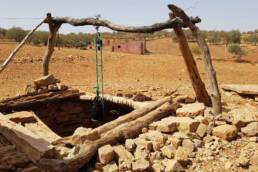المصادر:
نُشرت هذه الدراسة في المجلة العربية للعلوم السياسية العدد 9 سنة 2024.
[1]سيد فارس: أستاذ الأنثروبولوجيا المساعد – مصر.
[2] Kendra Coulter and William R. Schumann, «Government Matters: Intellectual Labor and the Work of Governing,» in: Kendra Coulter and William R. Schumann, eds., Governing Cultures: Anthropological Perspectives on Political Labor, Power, and Government (London: Palgrave Macmillan, 2012), p. 2.
[3] Ibid., p. 1.
[4] Manos Spyridakis, «Legitimating Poverty: The Minimum Guaranteed Income, Pilot Case,» in: Italo Pardo and Giuliana B. Prato, eds., Legitimacy: Ethnographic and Theoretical Insight (London: Palgrave Macmillan, 2019), p. 88.
[5] Mattei Dogan, Political Mistrust and the Discrediting of Politicians (Boston, Brill, 2005).
[6] James M. Avery, «Political Mistrust among African Americans and Support for the Political System,» Political Research Quarterly, vol. 62, no. 1 (March 2009), p. 132.
[7] Maruice Mangum, «Explaining Political Trust among African Americans: Examining Demographic, Media, and Social Capital and Social Networks Effects,» The Social Science Journal, vol. 48, no. 4 (2016), p. 589.
[8] Ben Seyd, «How Should We Measure Political Trust?,» A Paper for PSA Annual Conference, Brighton, 21st-23rd March 2016, p. 1, <https://www.psa.ac.uk/sites/default/files/conference/papers/2016/Paper.v2.pdf>. (retrieved 2 March 2021).
[9] William Mishler and Richard Rose, «Trust, Distrust and Skepticism: Popular Evaluations of Civil and Political Institutions in Post-communist Societies,» The Journal of Politics, vol. 59, no. 2 (May 1997), pp. 418 – 419.
[10] Patti Tamara Lenard, «Trust your Compatriots, but count your Change: The Roles of Trust, Mistrust and Distrust in Democracy,» Political Studies, vol. 56, no. 2 (June 2008), p. 315.
[11] Mishler and Rose, Ibid., p. 419.
[12] Peri K. Blind, «Building Trust in Government in the Twenty-first Century: Review of Literature and Emerging Issues,» 7th Global Forum on Reinventing Government Building Trust in Government, Vienna – Austria, 26-29 June 2007, pp. 5 and 20, <https://www.almendron.com/tribuna/wp-content/uploads/2016/11/building-trust-in-government-in-the-twenty-first-century.pdf> (Retrieved 6 May 2021).
[13] Ashley Ross and Maria Escobar-Lemmon (2011). The Price of Personalizing Politics: Political Distrust and Economic Performance in Latin America, 1996-2006,» Electoral Studies, vol. 30, no. 3 (September 2011), pp. 406 – 408.
[14] Christian Schnaudt, Political Confidence and Democracy in Europe: Antecedents and Consequences of Citizens’ Confidence in Representative and Regulative Institutions and Authorities (Berlin: Springer, 2019), pp. 118 – 120.
[15] Ibid., p. 121.
[16] James Ferguson and Akhil Gupta, «Spatializing States: Toward an Ethnography of Neoliberal Governmentality,» in: Jonathan Xavier Inda, Anthropologies of Modernity: Foucault, Governmentality, and Life Politics (New Jersey: Blackwell, 2005), pp. 114 –115.
[17] Salwa Ismail, Political Life in Cairo’s New Quarters: Encountering the Everyday State (Minnesota, MN: University of Minnesota Press, 2006), p. xxiv.
[18] Ibid., pp. xxv and xxvi, and Vanessa Lemm and Miguel Vatter, eds., The Government of Life: Foucault, Biopolitics, and Neoliberalism (New York City: Fordham University Press, 2014), p. 6.
[19] Coulter and Schumann, «Government Matters: Intellectual Labor and the Work of Governing,» pp.112 and 152-153.
[20] Martin Dodge and Chris Perkins, «Visuality, Secrecy and Cartography: Reversing the Panopticon through Counter-mapping,» pp. 3-4, <https://personalpages.manchester.ac.uk/staff/m.dodge/Visuality_secrecy_and_cartography.pdf> Retrieved (6 May 2021).
[21] Avery, «Political Mistrust among African Americans and Support for the Political System,» p. 133.
[22] Tom W. G. van der Meer, Political Trust and the «Crisis of Democracy» (New York: Oxford University Press, 2016).
[23] Ceri Wilson and Jenny Secker, «Validation of the Social Inclusion Scale with Students,» Social Inclusion, vol. 3, no. 4 (2015) p. 52, and Hilary Silver, «The Contexts of Social Inclusion,» DESA (Department of Economic and Social Affairs), Working Paper, no. 144 (October 2015), <https://www.un.org/esa/desa/papers/2015/wp144_2015.pdf>. (Retrieved 6 August 2020).
[24] Ruth Levitas [et al.], «The Multi-dimensional Analysis of Social Exclusion,» Department of Sociology and School for Social Policy Townsend Centre for the International Study of Poverty and Bristol Institute for Public Affairs University of Bristol, January 2007, pp. 18 and 25, <https://www.researchgate.net/publication/267222796_The_Multi-Dimensional_Analysis_of_Social_Exclusion> (Retrieved 3 February 2021), and The Nepal Multidimensional Social Inclusion Index: Diversity and Agenda for Inclusive Development, Central Department of Sociology/Anthropology, Tribhuvan University, Kathmandu, Nepal, 2014, pp. 1-7.
[25] Alexsandra Lewicki, Social Justice through Citizenship? The Politics of Muslim Integration in Germany and Great Britain (London: Palgrave Macmillan, 2014), p. 13.
[26] إبراهيم العيسوي، العدالة الاجتماعية والنماذج التنموية (الدوحة: المركز العربي للأبحاث ودراسات السياسات، 2014)، ص 95 – 96.
[27] Thomas Weaver, «Use of Hypothetical Situations in a Study of Spanish American Illness Referral Systems,» Human Organization, vol. 29, No. 2 (Summer 1970), p. 140).
[28] Régis Scheidegger and Christian Staerklé, «Political Trust and Distrust in Switzerland: A Normative Analysis,» Swiss Political Science Review, vol. 17, no. 2 (2011), pp. 165 – 166.
[29] Steven van de Walle and Frédérique Six, «Trust and Distrust as Distinct Concepts: Why Studying Distrust in Institutions is Important,» Journal of Comparative Policy Analysis, vol. 16 (2014), pp. 5-6.
[30] أحمد زايد، الأطر الثقافية الحاكمة لسلوك المصريين واختياراتهم: دراسة لقيم النزاهة والشفافية والفساد (القاهرة: وزارة الدولة للتنمية الإدارية، 2009)، ص 125.
[31] Andrea Teti, Pamela Abbott and Francesco Cavatorta, The Arab Uprisings in Egypt, Jordan and Tunisia: Social, Political and Economic Transformations (London: Palgrave, Macmillan, 2018), p. 103.
[32] خالد أبو دوح، «مستويات الثقة في المؤسسات الحكومية ومحدداتها،» المجلة العربية لعلم الاجتماع، العدد 24 (2019)، ص 17 – 63.
[33] Chong Zhang, «Cultural Citizenship and its Implications for Citizenship Education: Chinese University Students’ Civic Experience in Relation to Mass Media and the University Citizenship Curriculum,» (A PhD Thesis, University of Glasgow, 2016), pp. 59 and 61, https://theses.gla.ac.uk/7387/> (Retrieved 6 August 2020).
[34] Stevenson Nick, Cultural Citizenship: Cosmopolitan Questions (Berkshire: Open University Press, 2003), p. 21.
[35] Dogan, Political Mistrust and the Discrediting of Politicians, p. 30.
[36] Stephen C. Craig and Paulina S. Rippere, «Political Trust and Negative Campaigns: Two Tests of the Figure-ground Hypothesis,» Politics and Policy, vol. 42, no. 5 (2014), pp. 693-743.
[37] C. G. Amerigo, «The Reverse Panopticon,» (2012), https://thegocblog.com/2012/04/20/the-reverse-panopticon/l> (Retrieved 3 April 2021).
[38] Dieter Zinnbauer, «Reversing the Panopticon,» Polis Blog, 17 July 2013, <https://www.thepolisblog.org/2013/07/reversing-panopticon-designing-for.html> (Retrieved 2 May 2021).
[39] Alfonso J. Damico, M. Margaret Conway and Sandra Bowman Damico, «Patterns of political Trust and Mistrust: Three Moments in the Lives of Democratic Citizens,» Polity, vol. 32, no. 3 (Spring 2000), p. 378.
[40] بيونج تشول هان، مجتمع الشفافية، ترجمة بدر الدين مصطفى (الرباط: مؤمنون بلا حدود للدراسات والأبحاث، 2019)، ص 7، 15 و44.
[41] Van der Meer, Political Trust and the «Crisis of Democracy».
[42] برنامج الأمم المتحدة الإنمائي، وزارة التخطيط والتنمية الاقتصادية، تقرير التنمية البشرية في مصر 2021: التنمية حق للجميع: مصر المسيرة والمسار (القاهرة: الوزارة، 2021)، ص 93.
[43] Mariano Torcal, «The Decline of Political Trust in Spain and Portugal: Economic Performance or Political Responsiveness?,» American Behavioral Scientist, vol. 58, no. 12 (2014), p. 1547.
[44] Stephen Grimmelikhuijsen and Eva Knies, «Validating a Scale for Citizen Trust in Government Organizations,» International Review of Administrative Sciences, vol. 83, no. 3 (2017), p. 587.
[45] Lewicki, Social Justice through Citizenship? The Politics of Muslim Integration in Germany and Great Britain, p. 13.
[46] راي بوش، الفقر والليبرالية الجديدة: الاستمرارية وإعادة الإنتاج في جنوب العالم، ترجمة إلهام عيداروس ووليد سليم (القاهرة: المركز القومي للترجمة، 2015)، ص 19-20.
[47] المصدر نفسه، ص 22، 24، 33، 42 و313.
[48] النشرة الربع سنوية لبحث القوى العاملة (الجهاز المركزي للتعبئة العامة والإحصاء)، الربع الأول (كانون الثاني/يناير – آذار/مارس 2020)، ص 94.
[49] المجلس القومي للسكان والمركز المصري لبحوث الرأي العام (بصيرة)، تحليل الوضع السكاني – مصر 2016، <https://rb.gy/51wxz7>.
[50] النشرة الربع سنوية لبحث القوى العاملة (الجهاز المركزي للتعبئة العامة والإحصاء)، الربع الأول (كانون الثاني/يناير – آذار/مارس 2020)، ص 95-96.
[51] Elina Triantafyllidou and Fani Vavili, «Bare Lives in Invisible Cities: The Example of a setting of a Stopover,» Sociology and Anthropology, vol. 5, no. 7 (January 2016), pp. 571 – 572.
[52] Soraya Altorki, A Companion to the Anthropology of the Middle East (Oxford: Wiley Blackwell, 2015), p. 266.
[53] برنامج الأمم المتحدة الإنمائي، وزارة التخطيط والتنمية الاقتصادية، تقرير التنمية البشرية في مصر 2021: التنمية حق للجميع: مصر المسيرة والمسار، ص 110 – 112، 118 و130.
[54] المصدر نفسه، ص 118.
[55] الجهاز المركزي للتعبئة العامة والإحصاء، أهم مؤشرات بحث الدخل والإنفاق والاستهلاك، أكتوبر 2019 – مارس 2020، ص 86.
[56] برنامج الأمم المتحدة الإنمائي، وزارة التخطيط والتنمية الاقتصادية، تقرير التنمية البشرية في مصر 2021: التنمية حق للجميع: مصر المسيرة والمسار، ص 112، 116 و118.
[57] المصدر نفسه، ص 130.
[58] المجلس القومي للسكان والمركز المصري لبحوث الرأي العام (بصيرة)، تحليل الوضع السكاني – مصر 2016، <https://rb.gy/51wxz7>.
[59] حنان أبو سكين، «الخصائص الاجتماعية والاقتصادية للسكان في مصر،» أحوال مصرية (كانون الثاني/يناير، 2018)، <http://tinyurl.com/4xmhxrcz>
[60] المجلس القومي للسكان والمركز المصري لبحوث الرأي العام (بصيرة)، تحليل الوضع السكاني – مصر 2016، <https://rb.gy/51wxz7>.
[61] برنامج الأمم المتحدة الإنمائي، وزارة التخطيط والتنمية الاقتصادية، تقرير التنمية البشرية في مصر 2021: التنمية حق للجميع: مصر المسيرة والمسار، ص 145 و148.
[62] المجلس القومي للسكان والمركز المصري لبحوث الرأي العام (بصيرة)، المصدر نفسه.
[63] برنامج الأمم المتحدة الإنمائي، المكتب الإقليمي للدول العربية، تقرير التنمية الإنسانية العربية للعام 2016: الشباب وآفاق التنمية الإنسانية في واقع متغير (أبو ظبي: البرنامج، 2016)، ص 68.
[64] برنامج الأمم المتحدة الإنمائي، وزارة التخطيط والتنمية الاقتصادية، تقرير التنمية البشرية في مصر 2021: التنمية حق للجميع: مصر المسيرة والمسار، ص 66 – 67.
[65] المبادرة المصرية للحقوق الشخصية، العدالة الاجتماعية والصحية في مصر: تقرير حالة (آذار/مارس 2018).
[66] برنامج الأمم المتحدة الإنمائي، وزارة التخطيط والتنمية الاقتصادية، تقرير التنمية البشرية في مصر 2021: التنمية حق للجميع: مصر المسيرة والمسار، ص 48.
[67] تقرير حالة السكان في مصر وتبايناتها المكانية 2017 (القاهرة: معهد التخطيط القومي، 2019)، ص 31 – 37.
[68] أبو سكين، «الخصائص الاجتماعية والاقتصادية للسكان في مصر».
[69] المجلس القومي للسكان والمركز المصري لبحوث الرأي العام (بصيرة)، تحليل الوضع السكاني – مصر 2016، <https://rb.gy/51wxz7>.
[70] برنامج الأمم المتحدة الإنمائي، وزارة التخطيط والتنمية الاقتصادية، تقرير التنمية البشرية في مصر 2021: التنمية حق للجميع: مصر المسيرة والمسار، ص 40 – 41 و43.
[71] المجلس القومي للسكان والمركز المصري لبحوث الرأي العام (بصيرة)، تحليل الوضع السكاني – مصر 2016، <https://rb.gy/51wxz7>.
[72] برنامج الأمم المتحدة الإنمائي، وزارة التخطيط والتنمية الاقتصادية، تقرير التنمية البشرية في مصر 2021: التنمية حق للجميع: مصر المسيرة والمسار، ص 63 – 64، 39 و42.
[73] المجلس القومي للسكان والمركز المصري لبحوث الرأي العام (بصيرة)، تحليل الوضع السكاني – مصر 2016، <https://rb.gy/51wxz7>.
[74] زايد، الأطر الثقافية الحاكمة لسلوك المصريين واختياراتهم: دراسة لقيم النزاهة والشفافية والفساد؛ الباروميتر العربي 2014، وأبو دوح، «مستويات الثقة في المؤسسات الحكومية ومحدداتها».
بدعمكم نستمر
إدعم مركز دراسات الوحدة العربية
ينتظر المركز من أصدقائه وقرائه ومحبِّيه في هذه المرحلة الوقوف إلى جانبه من خلال طلب منشوراته وتسديد ثمنها بالعملة الصعبة نقداً، أو حتى تقديم بعض التبرعات النقدية لتعزيز قدرته على الصمود والاستمرار في مسيرته العلمية والبحثية المستقلة والموضوعية والملتزمة بقضايا الأرض والإنسان في مختلف أرجاء الوطن العربي.



